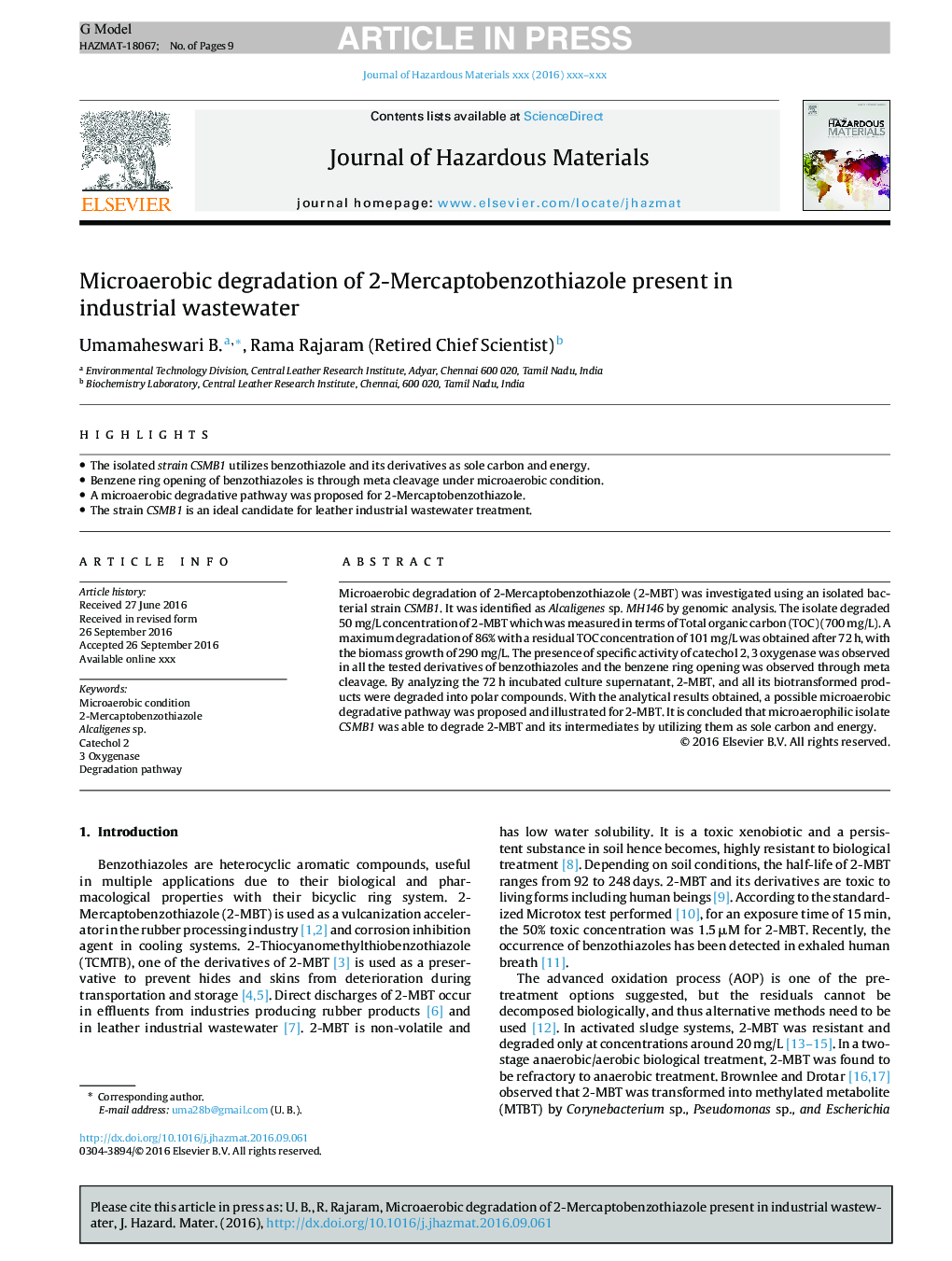| Article ID | Journal | Published Year | Pages | File Type |
|---|---|---|---|---|
| 4980104 | Journal of Hazardous Materials | 2017 | 9 Pages |
Abstract
Microaerobic degradation of 2-Mercaptobenzothiazole (2-MBT) was investigated using an isolated bacterial strain CSMB1. It was identified as Alcaligenes sp. MH146 by genomic analysis. The isolate degraded 50Â mg/L concentration of 2-MBT which was measured in terms of Total organic carbon (TOC) (700Â mg/L). A maximum degradation of 86% with a residual TOC concentration of 101Â mg/L was obtained after 72Â h, with the biomass growth of 290Â mg/L. The presence of specific activity of catechol 2, 3 oxygenase was observed in all the tested derivatives of benzothiazoles and the benzene ring opening was observed through meta cleavage. By analyzing the 72Â h incubated culture supernatant, 2-MBT, and all its biotransformed products were degraded into polar compounds. With the analytical results obtained, a possible microaerobic degradative pathway was proposed and illustrated for 2-MBT. It is concluded that microaerophilic isolate CSMB1 was able to degrade 2-MBT and its intermediates by utilizing them as sole carbon and energy.
Related Topics
Physical Sciences and Engineering
Chemical Engineering
Chemical Health and Safety
Authors
Umamaheswari B., Rama (Retired Chief Scientist),
